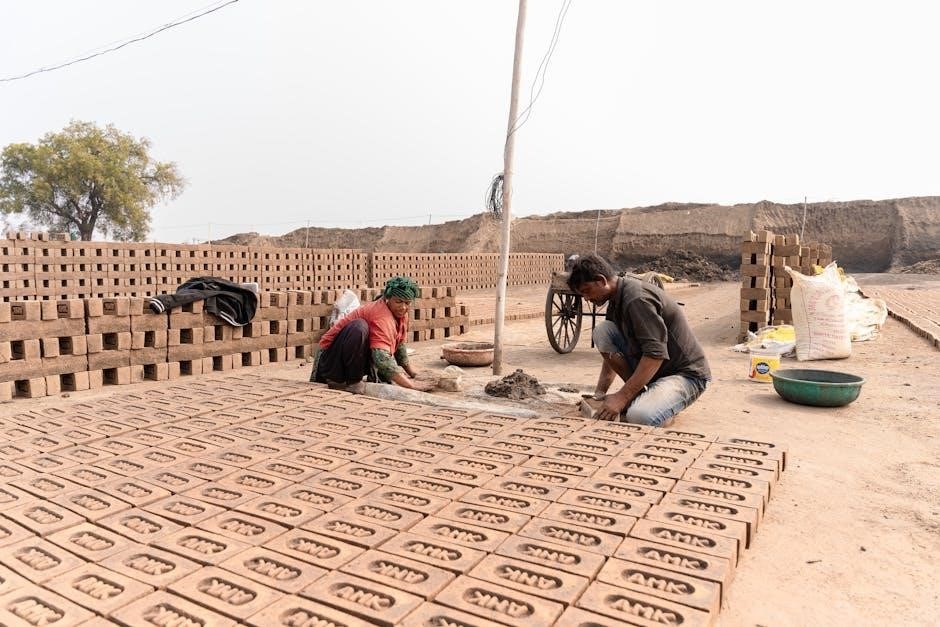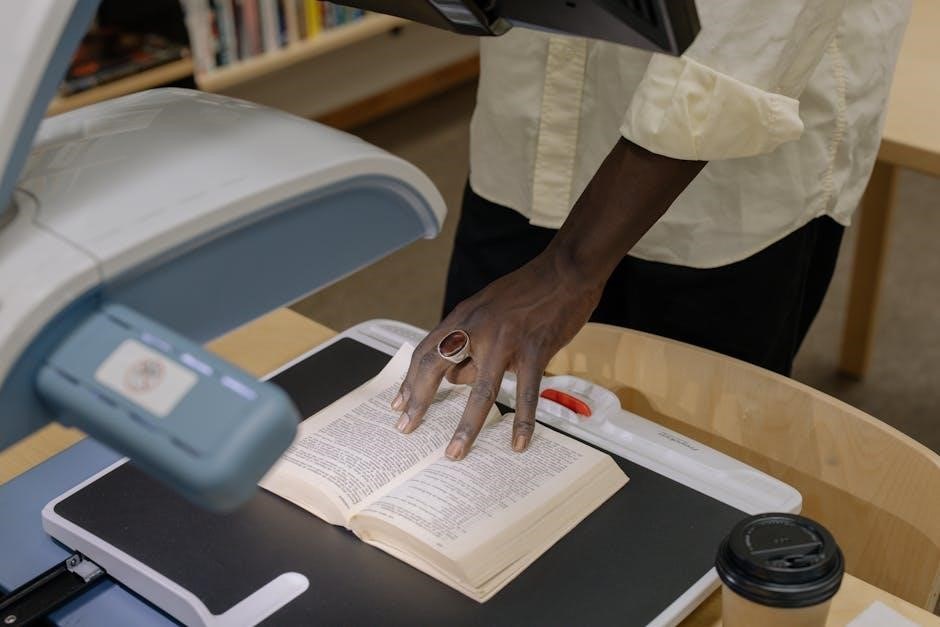Socratic questioning is a disciplined technique of asking probing questions to explore ideas deeply, uncover assumptions, and analyze thoughts systematically. Rooted in the Socratic Method, it encourages critical thinking, dialogue, and intellectual humility, making it a powerful tool in education, philosophy, and cognitive behavioral therapy.
1.1 Definition and Purpose
Socratic questioning is a disciplined technique of asking probing questions to deeply explore ideas, uncover assumptions, and analyze thoughts systematically. Its purpose is to stimulate critical thinking, challenge beliefs, and foster intellectual growth through thoughtful dialogue, making it a cornerstone of both educational and philosophical inquiry.
1.2 Historical Context
Originating in ancient Greece, Socratic questioning is rooted in the teachings of Socrates, who used dialogue to encourage critical examination of ideas. This method, known as the Socratic Method, has been refined over centuries, becoming a foundational approach in philosophy, education, and cognitive behavioral therapy.
1.3 Importance in Critical Thinking
Socratic questioning is a cornerstone of critical thinking, fostering analytical skills, independent thought, and effective problem-solving. By challenging assumptions and exploring ideas, it promotes deeper understanding and logical reasoning, making it indispensable in education, philosophy, and cognitive behavioral therapy.

The Socratic Method
The Socratic Method is a cooperative argumentative dialogue rooted in Socratic philosophy, using systematic questioning to stimulate critical thinking and draw out ideas, widely applied in education and therapy.
2.1 Origins and Philosophy
The Socratic Method originates from ancient Greek philosopher Socrates, emphasizing dialogue and systematic questioning to encourage critical thinking and expose underlying assumptions. This philosophy fosters intellectual humility and collaborative exploration, making it a cornerstone of Western education and critical inquiry, as detailed in various resources and PDF guides on the topic.

2.2 Key Characteristics

The Socratic Method is characterized by systematic, probing questions that encourage critical thinking and expose underlying assumptions. It emphasizes dialogue, collaboration, and intellectual humility, aiming to uncover truths and challenge beliefs through rigorous, disciplined inquiry, as outlined in various PDF resources and guides on Socratic questioning techniques.
2.3 Application in Modern Education
- Fosters critical thinking and analytical skills through structured dialogue.
- Encourages engagement and collaboration in diverse educational settings.
- Applies techniques like the Question Formulation Technique (QFT) to enhance student participation.
- These methods promote deeper understanding and active learning across all grade levels.
Types of Socratic Questions
- Clarifying questions seek to understand and define concepts clearly.
- Probing questions delve deeper into thoughts and assumptions.
- Challenging questions encourage critical examination of beliefs and logic.
3.1 Clarifying Questions
Clarifying questions are designed to seek clear and precise definitions of terms or concepts, ensuring understanding. They help identify assumptions and eliminate ambiguities, fostering a deeper exploration of ideas and laying a solid foundation for further discussion and analysis.
3.2 Probing Questions
Probing questions are designed to delve deeper into thoughts and ideas, challenging individuals to examine their assumptions and provide evidence for their beliefs. They encourage critical thinking and analysis, helping to uncover underlying perspectives and promote a more nuanced understanding of the subject at hand.
3.4 Challenging Assumptions
Challenging assumptions involves questioning underlying beliefs or premises to uncover gaps in logic or evidence. Socratic probing helps individuals critically examine their assumptions, fostering a deeper understanding and encouraging the development of well-supported conclusions through reflective dialogue and evidence-based reasoning.

Critical Thinking and Socratic Questioning
Socratic questioning is a cornerstone of critical thinking, enabling individuals to analyze ideas, identify biases, and evaluate evidence. It fosters deeper understanding through systematic exploration and logical reasoning.
4.1 Developing Analytical Skills
Socratic questioning enhances analytical skills by encouraging individuals to break down complex ideas, examine evidence, and evaluate logic. This systematic approach fosters deeper understanding, helping learners identify patterns, question assumptions, and refine their ability to analyze information critically and effectively.
4.2 Encouraging Independent Thought
Socratic questioning fosters independent thought by prompting individuals to think deeply and form their own conclusions. This method reduces reliance on external authority, encouraging self-reflection, autonomy, and the ability to evaluate information objectively, thereby nurturing intellectual independence and confidence in decision-making.
4.3 Enhancing Problem-Solving Abilities
Socratic questioning enhances problem-solving by encouraging individuals to break down complex issues, identify key components, and evaluate evidence. This method promotes critical analysis, logical reasoning, and the ability to approach problems from multiple perspectives, leading to more informed and effective solutions.
Socratic Questioning in Education
Socratic questioning fosters analytical thinking and critical inquiry in educational settings, encouraging students to engage deeply with material and develop well-reasoned conclusions through structured dialogue.
5.1 Classroom Applications
Socratic questioning is widely applied in classrooms to stimulate critical thinking and active participation. Teachers use open-ended questions to encourage dialogue, probing students’ understanding, and fostering deeper exploration of topics. This method is effective in large groups, small discussions, or one-on-one interactions, promoting engagement and intellectual growth across all grade levels.
5.2 Examples Across Grade Levels
Elementary students might explore story themes through questions like, “Why do you think the character made that choice?” Middle schoolers could analyze historical events with, “What were the consequences of this action?” High schoolers might debate ethical dilemmas using, “How does this relate to our society today?” promoting age-appropriate critical thinking.
5.3 Impact on Student Engagement
Socratic questioning fosters active participation, encouraging students to think deeply and engage meaningfully with material. By promoting collaborative dialogue, it enhances motivation, focus, and understanding, leading to increased classroom engagement and a more dynamic learning environment that values diverse perspectives and critical exploration.

Socratic Questioning in Cognitive Behavioral Therapy (CBT)
Socratic questioning in CBT involves asking probing questions to challenge and reframe clients’ thoughts, helping them identify and modify cognitive distortions, and fostering a deeper understanding of their beliefs and behaviors.
6.1 Role in Challenging Cognitive Distortions
Socratic questioning in CBT helps clients identify and challenge cognitive distortions by exploring the logic and evidence behind their thoughts. This process fosters awareness of unhelpful thinking patterns, enabling individuals to develop more balanced and constructive ways of viewing situations, ultimately promoting emotional and behavioral change.
6.2 Techniques for Effective Client Interaction
Effective Socratic questioning in CBT involves active listening, open-ended prompts, and non-confrontational dialogue. Therapists guide clients to explore thoughts critically, using techniques like reflective summarization and probing assumptions. This collaborative approach builds trust, encourages self-reflection, and helps clients gain insights, fostering a deeper understanding of their beliefs and behaviors.
6.3 Case Studies and Outcomes
Socratic questioning in CBT has shown effectiveness in challenging cognitive distortions. Case studies demonstrate its ability to reduce symptoms of anxiety and depression by promoting self-reflection and logical analysis. Clients often report improved critical thinking skills, leading to more adaptive thought patterns and behaviors over time.

Effective Socratic Questioning Techniques
Socratic questioning techniques involve open-ended questions, active listening, and creating a safe dialogue environment. These methods encourage deeper exploration of ideas, fostering critical thinking and meaningful discussions.
7.1 Open-Ended vs. Closed-Ended Questions
Open-ended questions encourage exploration and critical thinking, while closed-ended questions seek specific answers. Effective Socratic questioning emphasizes open-ended inquiries to provoke deeper thought, analysis, and understanding, fostering a richer dialogue and engagement compared to closed-ended questions, which often limit discussion.
7.2 Active Listening and Follow-Up
Active listening involves fully engaging with the speaker, understanding their perspective, and responding thoughtfully. Effective follow-up questions clarify, probe deeper, or challenge assumptions, ensuring meaningful dialogue and fostering a deeper exploration of ideas, enhancing the overall impact of Socratic questioning in various educational and therapeutic settings.
7.3 Creating a Safe Environment for Dialogue
Establishing a safe space requires fostering respect, empathy, and openness. Encouraging participants to express thoughts without fear of judgment ensures honest dialogue. This supportive atmosphere, crucial for effective Socratic questioning, promotes deeper engagement and collaboration, leading to richer insights and more meaningful exchanges in both educational and therapeutic contexts.
Analyzing Assumptions Through Socratic Questioning
Socratic questioning helps uncover and examine unstated beliefs and biases, promoting a deeper understanding of underlying assumptions. This method fosters critical examination and clarity in thought processes.
8.1 Identifying Unstated Beliefs
Socratic questioning techniques help uncover unstated beliefs by probing deeper into thoughts and assumptions. Open-ended questions encourage individuals to reflect on their underlying beliefs, revealing implicit ideas that shape their reasoning and perspectives, fostering clarity and deeper understanding. This process is particularly effective in challenging cognitive distortions and fostering critical analysis.
8.2 Examining Evidence and Logic
Socratic questioning involves examining evidence and logic to evaluate the validity of arguments. By asking clarifying and probing questions, individuals are prompted to test assumptions, identify biases, and ensure reasoning aligns with evidence. This process enhances critical thinking and promotes disciplined, evidence-based inquiry.
8.3 Constructive Challenge of Perspectives
Socratic questioning fosters a constructive challenge of perspectives by encouraging individuals to question and refine their views. Through open-ended inquiries, it promotes the exploration of alternative viewpoints, leading to a deeper understanding and more nuanced thinking. This approach respects diverse opinions while stimulating intellectual growth and collaboration.

Socratic Questioning and Reflective Thinking
Socratic questioning encourages reflective thinking by prompting individuals to examine their beliefs, values, and reasoning. It fosters self-reflection, enabling deeper analysis and understanding of complex ideas and perspectives.
9.1 Encouraging Self-Reflection
Socratic questioning fosters self-reflection by encouraging individuals to examine their beliefs, evaluate their thoughts, and consider multiple perspectives. This process stimulates personal growth, helping learners develop a deeper understanding of themselves and the ideas they engage with.
9.2 Promoting Meta-Cognition
Socratic questioning enhances meta-cognition by prompting individuals to reflect on their thought processes, evaluate reasoning, and identify knowledge gaps. This fosters awareness of cognitive strategies, encouraging learners to think about how they think and refine their approaches to problem-solving and understanding complex concepts.

9.3 Fostering Intellectual Humility
Socratic questioning cultivates intellectual humility by encouraging individuals to question their assumptions and recognize the limits of their knowledge. This practice promotes openness to alternative perspectives, discourages overconfidence, and fosters a willingness to learn from others, essential for growth and understanding.
The Role of Socratic Questioning in Professional Development
Socratic questioning fosters leadership, enhances decision-making, and promotes continuous learning. It encourages professionals to reflect, challenge assumptions, and adapt, driving personal and organizational growth effectively.
10.1 Leadership and Decision-Making
Socratic questioning enhances leadership by fostering critical thinking and collaborative decision-making. Leaders use probing questions to explore diverse perspectives, challenge assumptions, and guide teams toward informed, strategic choices, ultimately strengthening organizational resilience and innovation.
10.2 Team Collaboration and Communication
Socratic questioning enhances team collaboration by encouraging open dialogue and fostering a culture of mutual respect. It promotes clarity and alignment among team members while challenging assumptions to ensure diverse perspectives are considered. This approach not only strengthens communication but also builds trust and camaraderie within the team.
10.3 Continuous Learning and Improvement
Socratic questioning fosters a mindset of continuous learning by encouraging reflection, self-improvement, and intellectual growth. It helps individuals and teams identify gaps in knowledge, refine ideas, and adapt to new challenges, ensuring ongoing development in both personal and professional contexts.
Challenges and Limitations of Socratic Questioning
Socratic questioning faces challenges like resistance to authority, time constraints, and ensuring diverse perspectives, requiring careful facilitation to maintain engagement and inclusivity in discussions.
11.1 Resistance to Questioning Authority
Resistance to Socratic questioning often arises when it challenges authority, power dynamics, or deeply held beliefs, causing discomfort or defensiveness. This can hinder open dialogue, especially in hierarchical settings where participants may fear judgment or repercussions. Facilitators must foster a safe, non-threatening environment to encourage genuine engagement and minimize resistance effectively.
11.2 Managing Time and Focus
Socratic questioning sessions can be time-intensive, risking divergence from key topics. Effective facilitators must balance exploration with structure, setting clear agendas and gently refocusing discussions. Time management is crucial to ensure depth without losing momentum, requiring skillful navigation to maintain engagement and productivity within allocated timeframes.
11.3 Ensuring Inclusivity and Diversity of Perspectives
Socratic questioning must actively include diverse voices to foster equitable dialogue. Facilitators should encourage quieter participants, acknowledge varied experiences, and create a safe space for all perspectives. This ensures richer discussions, challenges biases, and promotes mutual respect, enhancing the depth of exploration and understanding within the group.
Socratic questioning is a timeless technique for fostering critical thinking and dialogue. For deeper exploration, refer to “The Thinkers Guide to the Art of Socratic Questioning” by Richard Paul and Linda Elder, a comprehensive resource for mastering this method.
12.1 Summary of Key Points
Socratic questioning is a powerful technique for exploring ideas, challenging assumptions, and fostering critical thinking. It involves disciplined dialogue, probing questions, and reflective thinking. Widely used in education and therapy, it promotes intellectual humility and deeper understanding. For further reading, “The Thinkers Guide to the Art of Socratic Questioning” is highly recommended.
12.2 Recommended Reading and PDF Guides
Essential resources include “The Thinkers Guide to the Art of Socratic Questioning” by Richard Paul and Linda Elder, offering deep insights into questioning techniques. A PDF guide by Paul and Elder provides practical strategies for educators and professionals to implement Socratic methods effectively in various settings.





























































